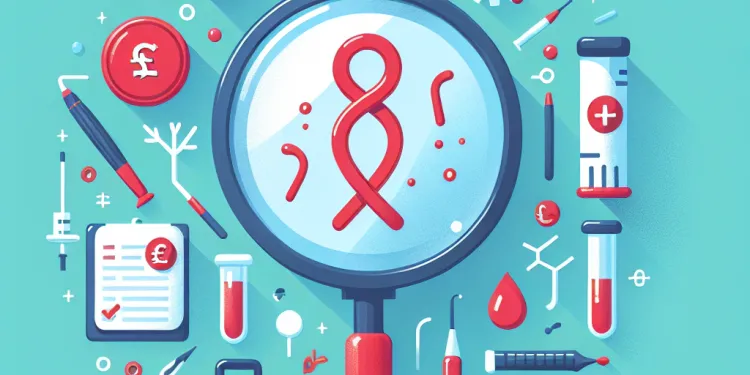
Find Help
More Items From Ergsy search
-
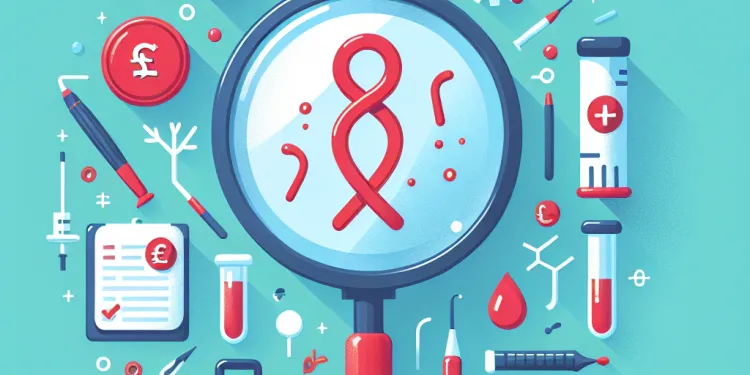
How is sickle cell disease diagnosed?
Relevance: 100%
-

Introduction to Sickle cell disease
Relevance: 98%
-

What is sickle cell disease?
Relevance: 96%
-

What are the symptoms of sickle cell disease?
Relevance: 94%
-

How is sickle cell disease inherited?
Relevance: 92%
-
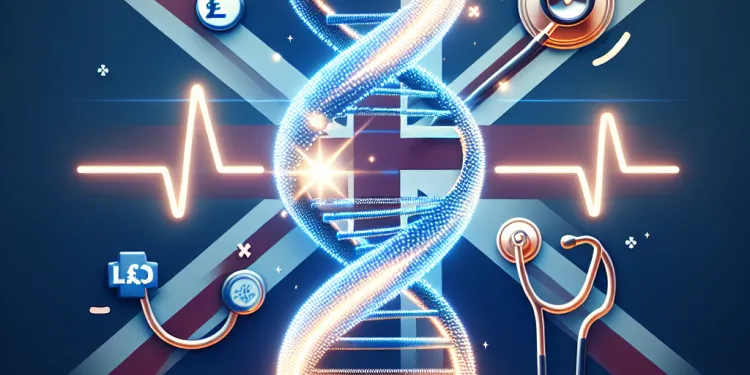
How is sickle cell disease treated?
Relevance: 91%
-

What are the complications of sickle cell disease?
Relevance: 91%
-

Sickle cell anaemia | NHS
Relevance: 81%
-

Tour of the Sickle Cell and Thalassaemia Unit at City Hospital | SCaT
Relevance: 73%
-

Sickle cell patients share their experiences with the last NHS Chief Executive Amanda Pritchard
Relevance: 63%
-

What is the life expectancy after a motor neurone disease diagnosis?
Relevance: 36%
-

Will I be in a shared or single cell?
Relevance: 34%
-

What is Mitochondrial disease?
Relevance: 34%
-

Prostate cancer diagnosis and tests
Relevance: 34%
-

Head and Neck Cancer Diagnosis
Relevance: 32%
-

Why might someone need a blood transfusion?
Relevance: 31%
-

How is Huntington's disease diagnosed?
Relevance: 31%
-
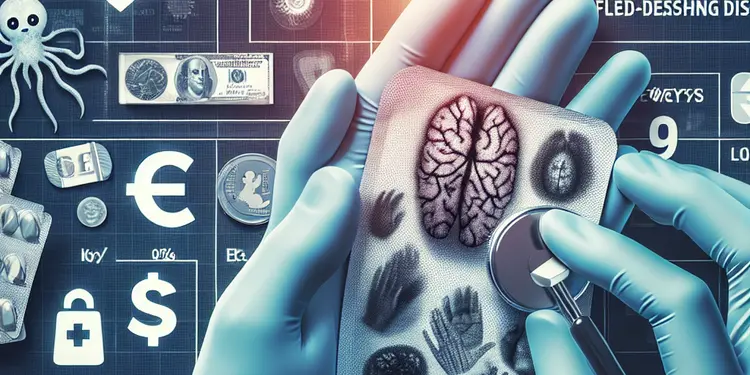
How is flesh-eating disease diagnosed?
Relevance: 30%
-

What are some common reasons blood transfusions are needed?
Relevance: 30%
-

What research is being done on Huntington's disease?
Relevance: 30%
-

When do I find out about my cell assignment?
Relevance: 30%
-

Anaemia One stop shop
Relevance: 30%
-
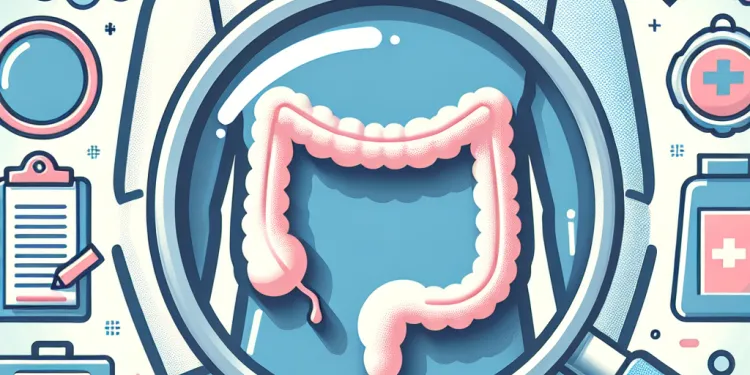
How is Crohn's disease diagnosed?
Relevance: 29%
-

Can Huntington's disease be cured?
Relevance: 29%
-

How is motor neurone disease diagnosed?
Relevance: 28%
-

Is there a cure for motor neurone disease?
Relevance: 28%
-

BSL - Diagnosis of panic disorder
Relevance: 27%
-

What is Huntington's disease?
Relevance: 27%
-

Is motor neurone disease hereditary?
Relevance: 27%
-

What is motor neurone disease?
Relevance: 27%
-

Are AI systems used alone in lung cancer diagnosis or alongside human radiologists?
Relevance: 27%
-

Can Huntington's disease be prevented?
Relevance: 26%
-

How is Alzheimer's disease diagnosed?
Relevance: 26%
-
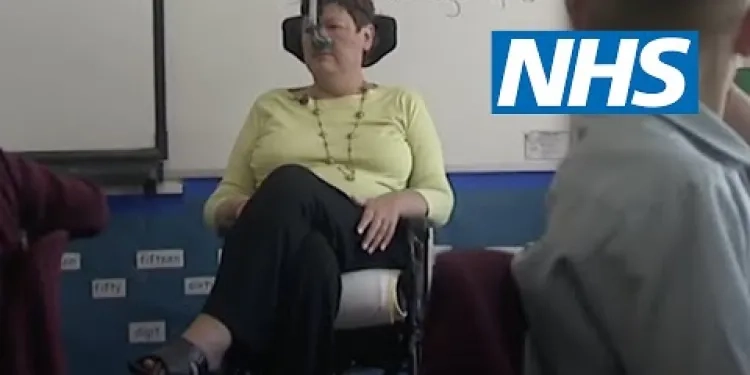
Motor neurone disease Julie's story | NHS
Relevance: 26%
-

Parkinson's disease: Karen's story | NHS
Relevance: 26%
-

Coeliac disease
Relevance: 26%
-

Coeliac Disease: Session 1: What is Coeliac Disease?
Relevance: 25%
-

What tests are available for diagnosing Lyme disease?
Relevance: 25%
-

What is Alzheimer's disease?
Relevance: 25%
-

BSL - Diagnosis of obsessive compulsive disorder (OCD)
Relevance: 25%
Understanding Sickle Cell Disease Diagnosis
Sickle cell disease is a genetic blood disorder that predominantly affects people of African, Caribbean, Middle Eastern, Eastern Mediterranean, and Asian descent. Accurate and early diagnosis is crucial for effective management and improving the quality of life for those affected. In the UK, there are well-established procedures for diagnosing sickle cell disease, involving a combination of screening and diagnostic tests.
Newborn Screening
In the UK, neonatal screening for sickle cell disease is part of the NHS Newborn Blood Spot Screening Programme, commonly known as the heel-prick test. This test is offered to all newborns and performed within the first few days after birth. A few drops of blood are taken from the baby's heel and tested for various genetic conditions, including sickle cell disease. This early detection allows for prompt intervention and management of the disease from infancy.
Blood Tests
For individuals not diagnosed at birth or those who move to the UK from regions where screening might not have been conducted, blood tests are essential for diagnosis. The most common test used is the hemoglobin electrophoresis. This test identifies the type of hemoglobin in the blood by measuring the different forms of hemoglobin present. Individuals with sickle cell disease have an abnormal form of hemoglobin called hemoglobin S.
Genetic Testing
Genetic testing is sometimes used to confirm a diagnosis of sickile cell disease, particularly in cases where the diagnosis is unclear or if there's a family history of the disease. This involves analyzing a sample of DNA, usually from a blood sample, to check for mutations in the HBB gene, which is responsible for producing hemoglobin. A mutation in this gene can indicate sickle cell disease.
Prenatal Diagnosis
For couples at risk of having a child with sickle cell disease, prenatal diagnosis is available. Tests such as chorionic villus sampling (CVS) and amniocentesis can determine whether the fetus has sickle cell disease. These tests involve taking samples from the placenta or amniotic fluid, respectively, to analyze the fetal DNA. Prenatal testing helps prospective parents make informed decisions and prepare for the management of sickle cell disease should their child be affected.
Consultation with a Specialist
If sickle cell disease is suspected, a referral to a hematologist or a specialist in genetics is often necessary. These specialists provide a comprehensive evaluation, confirmatory testing, and detailed counseling for individuals and families affected by or at risk of sickle cell disease. They also guide ongoing management and monitoring of the condition.
Conclusion
Timely diagnosis of sickle cell disease in the UK is facilitated through newborn screening programs, blood tests, genetic testing, and prenatal diagnostic options. These measures ensure prompt intervention, reducing complications and improving outcomes for those living with the disorder.
Understanding Sickle Cell Disease Diagnosis
Sickle cell disease is a problem with the blood. It mostly affects people whose families come from Africa, the Caribbean, the Middle East, Eastern Mediterranean, and Asia. It is important to find out if someone has sickle cell disease early, so we can help them feel better. In the UK, there are good ways to find out if someone has sickle cell disease. This includes special tests to check the blood.
Newborn Screening
In the UK, every newborn baby gets a test to check for sickle cell disease. This is part of a health program called the NHS Newborn Blood Spot Screening Programme, or the heel-prick test. The test is done soon after a baby is born. A nurse takes a little bit of blood from the baby's heel. The blood is tested for sickle cell disease and other problems. Finding out early helps the doctors take care of the baby right away.
Blood Tests
If someone was not checked when they were a baby, or if they move to the UK from another country, blood tests help find sickle cell disease. The main test is called hemoglobin electrophoresis. This test looks for the type of hemoglobin in the blood. People with sickle cell disease have a different kind of hemoglobin called hemoglobin S.
Genetic Testing
Sometimes, if doctors are not sure if someone has sickle cell disease, they use genetic testing. This is especially true if the person has family members with the disease. The test looks at the person's DNA from a blood sample. It looks for changes in the HBB gene, which helps make hemoglobin. If there is a change, it can mean the person has sickle cell disease.
Prenatal Diagnosis
If a mom and dad might have a baby with sickle cell disease, they can have tests before the baby is born. Tests like chorionic villus sampling (CVS) and amniocentesis check the baby’s DNA. They use samples from the placenta or the fluid around the baby. These tests can help parents get ready if their baby will have sickle cell disease.
Consultation with a Specialist
If doctors think someone might have sickle cell disease, they will send them to see a special doctor. This doctor is called a hematologist or a genetics specialist. These doctors know a lot about sickle cell disease and can give the right tests and advice. They also help families understand and manage the disease.
Conclusion
Finding out if someone has sickle cell disease early is very important in the UK. Tests at birth, blood tests, genetic tests, and tests before a baby is born all help find the disease. These tests help doctors start helping right away, which means people with sickle cell disease can live better lives.
Frequently Asked Questions
What is sickle cell disease?
Sickle cell disease is a group of inherited red blood cell disorders characterized by abnormal hemoglobin, which causes red blood cells to become rigid and crescent-shaped.
How is sickle cell disease diagnosed?
Sickle cell disease is diagnosed through a blood test called a hemoglobin electrophoresis, which identifies the presence of sickle hemoglobin.
At what age can sickle cell disease be diagnosed?
Sickle cell disease can be diagnosed at birth through newborn screening programs.
Is newborn screening for sickle cell disease mandatory?
In many countries, including the United States, newborn screening for sickle cell disease is part of the standard panel of tests.
What types of tests are used to confirm a sickle cell diagnosis?
Besides hemoglobin electrophoresis, DNA testing and high-performance liquid chromatography (HPLC) are also used for confirmation.
Can sickle cell disease be detected before birth?
Yes, prenatal testing such as amniocentesis or chorionic villus sampling can diagnose sickle cell disease before birth.
What is the purpose of a hemoglobin electrophoresis test?
A hemoglobin electrophoresis test separates and identifies different types of hemoglobin in the blood, revealing abnormal forms like sickle hemoglobin.
Is genetic counseling recommended for families with sickle cell disease?
Yes, genetic counseling is often recommended for families affected by sickle cell disease to understand inheritance patterns and assess risks.
Can a simple blood test detect sickle cell disease in adults?
Yes, a simple blood test can detect sickle cell disease in adults, even if they were not diagnosed as children.
Are there symptoms that indicate the need for testing for sickle cell disease?
Common symptoms that may prompt testing include anemia, pain episodes, swelling in the hands and feet, and frequent infections.
What is the difference between sickle cell disease and sickle cell trait?
Sickle cell disease means an individual has two copies of the sickle cell gene, while sickle cell trait means they have one normal gene and one sickle gene, usually without symptoms.
How accurate are the tests for sickle cell disease?
Hemoglobin electrophoresis and other confirmatory tests are highly accurate in diagnosing sickle cell disease.
Can sickle cell disease be mistaken for other conditions?
While some symptoms may overlap with other conditions, specific tests can accurately diagnose sickle cell disease.
Do both parents need to carry the sickle cell gene for a child to have the disease?
Yes, a child must inherit one sickle cell gene from each parent to have sickle cell disease.
What follow-up tests are done after an initial diagnosis?
Follow-up tests may include complete blood count (CBC), reticulocyte count, and liver and kidney function tests to monitor health.
Is family history important in diagnosing sickle cell disease?
Yes, a family history of sickle cell disease or sickle cell trait can be important for assessing risk and guiding testing.
How long does it take to get results from a sickle cell test?
Results from a sickle cell test, such as hemoglobin electrophoresis, can typically be available within a few days to a week.
What populations are most at risk for sickle cell disease?
Sickle cell disease is more prevalent in people of African, Mediterranean, Middle Eastern, and Indian ancestry.
Can lifestyle factors contribute to a positive diagnosis of sickle cell disease?
Sickle cell disease is a genetic condition and is not influenced by lifestyle factors.
Can sickle cell disease be managed if diagnosed early?
Yes, early diagnosis and treatment can help manage symptoms and improve quality of life for those with sickle cell disease.
What is sickle cell disease?
Sickle cell disease is an illness that affects your blood. It makes red blood cells shaped like a sickle, which is like a banana. This can cause pain and tiredness.
If you want help to understand more, ask a doctor or a nurse. They can explain it better.
Using pictures or videos can also help you learn.
Sickle cell disease is a sickness you get from your parents. It makes your red blood cells look different. Instead of being round, they are bent and stiff, like a banana.
How do doctors find out if someone has sickle cell disease?
Doctors can do a special blood test to see if someone has sickle cell disease. This test looks at the red blood cells to check if they are sickle-shaped, like a banana.
If you need help, you can use pictures or videos to understand better. It's also okay to ask questions if you are unsure.
Doctors use a special blood test to find out if someone has sickle cell disease. This test looks for sickle hemoglobin in the blood.
When can doctors know if someone has sickle cell disease?
Doctors can find out if a person has sickle cell disease when they are born. They do a special blood test on newborn babies. This helps doctors know if the baby has sickle cell disease right away.
If you want help reading, you can use tools like apps that read out loud. You can also ask someone to read with you. It is okay to ask questions if you do not understand.
Doctors can find out if a baby has sickle cell disease right after they are born. They do a special test on newborn babies to check for this.
Do all newborns have to get tested for sickle cell disease?
In lots of countries, like the United States, when a baby is born, doctors do some tests. One of these tests checks for sickle cell disease. This is a normal test for babies.
What tests are used to find out if someone has sickle cell?
Doctors use special tests to check for sickle cell. Here are some:
- Blood test: A small needle takes blood to look for sickle cells.
- Hemoglobin test: This checks the type of hemoglobin in your blood.
- Genetic test: This test looks at your genes to see if you have sickle cell traits.
If you need help, ask a doctor or nurse to explain more. You can also use pictures or videos to understand better.
Doctors use a few ways to check your blood. They use a test called hemoglobin electrophoresis. They also use DNA tests and a special tool called HPLC. These help them make sure of the results.
Can doctors find sickle cell disease before a baby is born?
Doctors can test to see if a baby has sickle cell disease before the baby is born. They use special tests to look at the baby's blood in the mother’s tummy. These tests are safe.
The doctors take a little bit of liquid from the mother’s tummy to test it. This liquid is called amniotic fluid. Or, they may take a tiny bit of the baby's tissue to test.
If you want to talk more about this, you can ask your doctor or a nurse to explain it. They can help you understand the tests.
Yes, doctors can check if a baby will have sickle cell disease before the baby is born. They use special tests like amniocentesis or chorionic villus sampling to find this out.
Why do we have a hemoglobin electrophoresis test?
A hemoglobin electrophoresis test is a way for doctors to look at the different types of hemoglobin in your blood. Hemoglobin is a part of your blood that helps carry oxygen.
This test can help find problems with your blood, like sickle cell disease or thalassemia.
If you want to understand your test better, you can:
- Ask a doctor or nurse to explain it in simple words.
- Use pictures or diagrams to help you understand.
- Have a family member or friend go with you to ask questions.
A hemoglobin electrophoresis test looks at the types of hemoglobin in your blood. It can find unusual kinds, like sickle hemoglobin.
Should families with sickle cell disease talk to a genetic counselor?
Yes, it is a good idea for families with sickle cell disease to talk to a genetic counselor. A genetic counselor can help the family understand the disease and its impact.
Here are some things you can do to make it easier:
- Ask the counselor to explain things simply.
- Write down important points during the session.
- Bring a friend or family member for support.
- Use pictures and diagrams to understand better.
Yes, it is a good idea for families with sickle cell disease to talk to a genetic counselor. They can help you understand how the disease is passed down in families and what the risks are.
Can a blood test find sickle cell disease in grown-ups?
A blood test can show if someone has sickle cell disease. Doctors use this test to check for the disease. If you have questions, ask your doctor or nurse.
Tools to help you understand:
- Ask someone to read with you.
- Use pictures to help explain.
- Take your time to think about it.
Yes, a simple blood test can show if an adult has sickle cell disease, even if they didn't find out when they were a child.
Do you have signs that you should get tested for sickle cell disease?
Here are some signs that might mean you need a test:
- Feeling tired because of low blood (this is called anemia)
- Having pain that comes and goes
- Hands and feet getting swollen
- Getting sick a lot
If you see these signs, it's a good idea to talk to a doctor.
How are sickle cell disease and sickle cell trait different?
Sickle cell disease is an illness. It makes red blood cells wrong-shaped. This can make you feel sick.
Sickle cell trait means you carry a gene for the illness. You don't get sick, but you can pass the gene to your child.
Use pictures to help understand better. Ask a doctor or nurse if you need more help.
Sickle cell disease means a person has two sickle cell genes. Sickle cell trait means a person has one normal gene and one sickle cell gene. People with sickle cell trait usually do not have symptoms.
How good are the tests for sickle cell disease?
Tests for sickle cell disease are very good. They can tell you if someone has the disease. Doctors use these tests to check if your red blood cells are shaped differently.
If you want to know more about the tests, talk to your doctor. They can help explain things and answer your questions. Using pictures and videos can also help you understand better.
Doctors use special tests to check for sickle cell disease. One test is hemoglobin electrophoresis. This test is very good at finding sickle cell disease.
Can sickle cell disease be confused with other illnesses?
Some symptoms of sickle cell disease can be like other illnesses, but doctors can do special tests to find out if someone has sickle cell disease for sure.
Do both parents need to have the sickle cell gene for a child to get the disease?
When we talk about genes, it's like looking at the instructions that tell our bodies how to work. Sickle cell is something that can make us sick. If one parent has the sickle cell gene, the child might not get sick, but could carry the gene.
If both parents have the sickle cell gene, then the child might get sick. Think of it like this: if you need two special keys to open a box, and both keys are found with each parent, then the box (sickle cell) can be opened.
Ask a doctor to explain more, or use pictures and videos to help understand better. They can show how genes work like puzzle pieces joining together. Try using apps or websites with drawings and interactive games to make learning about this topic fun and easy.
Yes, a child gets sickle cell disease if they get one sickle cell gene from each parent.
What tests are done after finding out what is wrong?
After finding out what is wrong, doctors do more tests to learn more.
These tests help doctors decide the best way to help you feel better.
You can talk to your doctor or nurse if you have questions about the tests.
Using pictures or videos might help explain the tests better.
Doctors might do more tests to check your health. These tests can look at your blood, how your liver is working, and how your kidneys are working.
Does your family's health history help find out if you have sickle cell disease?
Yes, if someone in your family has sickle cell disease or the sickle cell trait, it can help doctors know if you might have it too. This can help them decide if you need a test.
When will I find out my sickle cell test results?
When you take a test for sickle cell, like the hemoglobin electrophoresis test, you can get the results in a few days. Sometimes it might take up to a week.
Who gets sickle cell disease most often?
Some people get sickle cell disease more often than others. Here are some groups who are more at risk:
- People with family from Africa.
- People with family from the Middle East.
- People with family from India.
- People with family from the Mediterranean, like Greece or Italy.
- People with family from Central and South America.
Helpful tip: If reading is hard, ask someone to read with you. You can also use audiobooks.
Sickle cell disease is more common in people from Africa, the Mediterranean, the Middle East, and India.
Here is how to read this in an easier way:
- "Sickle cell disease" is a blood problem that some people have.
- "More common" means it happens more often in some people than others.
- "People from Africa, the Mediterranean, the Middle East, and India" means people or families who come from these places.
Try these tools to help understand better:
- Use pictures or maps to see where Africa, the Mediterranean, the Middle East, and India are.
- Ask a teacher or parent to explain tricky words.
- Use a simple dictionary to look up words you don't know.
Can the way I live make sickle cell disease worse?
Some things like smoking, eating bad foods, or not sleeping enough can make sickle cell disease worse.
Try to eat healthy food, drink enough water, and get plenty of rest. These things can help you feel better.
If you need help, ask a doctor, a nurse, or someone you trust.
Sickle cell disease is something people are born with. It runs in families and does not change because of how you live.
Can we help people with sickle cell disease if we find it early?
Yes, finding out early and getting help can make people with sickle cell disease feel better and live happier lives.
Useful Links
This website offers general information and is not a substitute for professional advice.
Always seek guidance from qualified professionals.
If you have any medical concerns or need urgent help, contact a healthcare professional or emergency services immediately.
Some of this content was generated with AI assistance. We’ve done our best to keep it accurate, helpful, and human-friendly.
- Ergsy carfully checks the information in the videos we provide here.
- Videos shown by Youtube after a video has completed, have NOT been reviewed by ERGSY.
- To view, click the arrow in centre of video.
- Most of the videos you find here will have subtitles and/or closed captions available.
- You may need to turn these on, and choose your preferred language.
- Go to the video you'd like to watch.
- If closed captions (CC) are available, settings will be visible on the bottom right of the video player.
- To turn on Captions, click settings .
- To turn off Captions, click settings again.
More Items From Ergsy search
-

How is sickle cell disease diagnosed?
Relevance: 100%
-

Introduction to Sickle cell disease
Relevance: 98%
-

What is sickle cell disease?
Relevance: 96%
-

What are the symptoms of sickle cell disease?
Relevance: 94%
-

How is sickle cell disease inherited?
Relevance: 92%
-

How is sickle cell disease treated?
Relevance: 91%
-

What are the complications of sickle cell disease?
Relevance: 91%
-

Sickle cell anaemia | NHS
Relevance: 81%
-

Tour of the Sickle Cell and Thalassaemia Unit at City Hospital | SCaT
Relevance: 73%
-

Sickle cell patients share their experiences with the last NHS Chief Executive Amanda Pritchard
Relevance: 63%
-

What is the life expectancy after a motor neurone disease diagnosis?
Relevance: 36%
-

Will I be in a shared or single cell?
Relevance: 34%
-

What is Mitochondrial disease?
Relevance: 34%
-

Prostate cancer diagnosis and tests
Relevance: 34%
-

Head and Neck Cancer Diagnosis
Relevance: 32%
-

Why might someone need a blood transfusion?
Relevance: 31%
-

How is Huntington's disease diagnosed?
Relevance: 31%
-

How is flesh-eating disease diagnosed?
Relevance: 30%
-

What are some common reasons blood transfusions are needed?
Relevance: 30%
-

What research is being done on Huntington's disease?
Relevance: 30%
-

When do I find out about my cell assignment?
Relevance: 30%
-

Anaemia One stop shop
Relevance: 30%
-

How is Crohn's disease diagnosed?
Relevance: 29%
-

Can Huntington's disease be cured?
Relevance: 29%
-

How is motor neurone disease diagnosed?
Relevance: 28%
-

Is there a cure for motor neurone disease?
Relevance: 28%
-

BSL - Diagnosis of panic disorder
Relevance: 27%
-

What is Huntington's disease?
Relevance: 27%
-

Is motor neurone disease hereditary?
Relevance: 27%
-

What is motor neurone disease?
Relevance: 27%
-

Are AI systems used alone in lung cancer diagnosis or alongside human radiologists?
Relevance: 27%
-

Can Huntington's disease be prevented?
Relevance: 26%
-

How is Alzheimer's disease diagnosed?
Relevance: 26%
-

Motor neurone disease Julie's story | NHS
Relevance: 26%
-

Parkinson's disease: Karen's story | NHS
Relevance: 26%
-

Coeliac disease
Relevance: 26%
-

Coeliac Disease: Session 1: What is Coeliac Disease?
Relevance: 25%
-

What tests are available for diagnosing Lyme disease?
Relevance: 25%
-

What is Alzheimer's disease?
Relevance: 25%
-

BSL - Diagnosis of obsessive compulsive disorder (OCD)
Relevance: 25%


